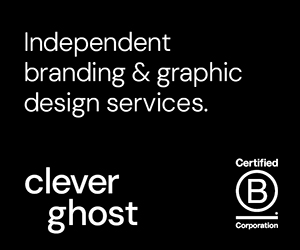17/12/2010
NHS Wasting Millions On Expensive Insulin
A drive by the drug industry to promote new, more expensive type of insulins (known as analogue insulins) for people with type 2 diabetes is estimated to have cost the NHS at least £250m extra over the past five years. Yet for most people with type 2 diabetes, the extra cost does not correspond to the equivalent extra benefit.
A joint investigation by the British Medical Journal and Channel 4 News argues that health services and individuals across the world are paying the price for this market drive.
Analogue insulin can cost up to five times as much as conventional insulin in some markets, yet the published evidence suggests that the analogues do not improve overall glucose control or safety in type 2 diabetes, although they may have marginal benefits for some patients in terms of convenience, reduced weight gain or less risk of hypoglycaemia.
The National Institute for Clinical Excellence (NICE) recommends human insulin as the treatment of choice for people with diabetes. Furthermore, a recent health technology assessment concluded that, in type 2 diabetes, analogue insulins weren’t worth what the NHS was being charged in most cases.
The World Health Organisation has also raised concerns about more expensive analogue insulins taking the place of their cheaper human equivalents while questions remain about their cost effectiveness. Yet analogues now account for approximately 80% of insulin use in the UK, 70% in the US, and 60% in Europe. Two analogues currently dominate the global market – Novo Nordisk’s insulin detemir (Levemir) and Sanofi’s insulin glargine (Lantus).
So given the evidence and the costs, why are analogues so popular? Dr Amanda Adler of NICE suggests that this market share is largely down to clever marketing and says that around 90% of people with type 2 diabetes “would probably do quite well on these human insulins compared with the long acting insulin analogues.”
She also points out that the new insulins have much fancier packaging – the “Mont Blanc of insulin devices” – than older human types.
In the push towards analogues, cheaper human insulins are being withdrawn. At the end of December, Mixtard 30, a popular and well tolerated human insulin, will be withdrawn by its manufacturer, Novo Nordisk. Its 90,000 or so users will be forced to seek alternatives, some no doubt moving to analogues.
Several leading specialists and the Insulin Dependent Diabetes Trust have already warned that the move will “adversely affect the wellbeing of many people with diabetes and add millions to NHS costs.”
In the UK alone, diabetes is estimated to cost the NHS some £9bn - approximately 10% of its entire budget – and this is set to rise. With healthcare systems across the world under extreme financial pressure, the debate on human versus analogue insulin is a timely and important discussion to have. In response, the drug companies stress the advantages of analogue insulins citing flexibility and the reduced risk of hypoglycaemia. They said the value to patients is that they offer a much better experience and that in relation to modern insulins it is important to look beyond the cost of the insulin itself.
With regard to Mixtard’s withdrawal Novo Nordisk said that whenever new products that provide benefits in efficacy or safety become widely used manufacturers must consider ceasing production of older versions. It says it has taken advice from the Department of Health and others to ensure support for those affected by the withdrawal so that patients are prescribed a suitable alternative insulin and discontinuation is managed effectively.
(BMcN)
A joint investigation by the British Medical Journal and Channel 4 News argues that health services and individuals across the world are paying the price for this market drive.
Analogue insulin can cost up to five times as much as conventional insulin in some markets, yet the published evidence suggests that the analogues do not improve overall glucose control or safety in type 2 diabetes, although they may have marginal benefits for some patients in terms of convenience, reduced weight gain or less risk of hypoglycaemia.
The National Institute for Clinical Excellence (NICE) recommends human insulin as the treatment of choice for people with diabetes. Furthermore, a recent health technology assessment concluded that, in type 2 diabetes, analogue insulins weren’t worth what the NHS was being charged in most cases.
The World Health Organisation has also raised concerns about more expensive analogue insulins taking the place of their cheaper human equivalents while questions remain about their cost effectiveness. Yet analogues now account for approximately 80% of insulin use in the UK, 70% in the US, and 60% in Europe. Two analogues currently dominate the global market – Novo Nordisk’s insulin detemir (Levemir) and Sanofi’s insulin glargine (Lantus).
So given the evidence and the costs, why are analogues so popular? Dr Amanda Adler of NICE suggests that this market share is largely down to clever marketing and says that around 90% of people with type 2 diabetes “would probably do quite well on these human insulins compared with the long acting insulin analogues.”
She also points out that the new insulins have much fancier packaging – the “Mont Blanc of insulin devices” – than older human types.
In the push towards analogues, cheaper human insulins are being withdrawn. At the end of December, Mixtard 30, a popular and well tolerated human insulin, will be withdrawn by its manufacturer, Novo Nordisk. Its 90,000 or so users will be forced to seek alternatives, some no doubt moving to analogues.
Several leading specialists and the Insulin Dependent Diabetes Trust have already warned that the move will “adversely affect the wellbeing of many people with diabetes and add millions to NHS costs.”
In the UK alone, diabetes is estimated to cost the NHS some £9bn - approximately 10% of its entire budget – and this is set to rise. With healthcare systems across the world under extreme financial pressure, the debate on human versus analogue insulin is a timely and important discussion to have. In response, the drug companies stress the advantages of analogue insulins citing flexibility and the reduced risk of hypoglycaemia. They said the value to patients is that they offer a much better experience and that in relation to modern insulins it is important to look beyond the cost of the insulin itself.
With regard to Mixtard’s withdrawal Novo Nordisk said that whenever new products that provide benefits in efficacy or safety become widely used manufacturers must consider ceasing production of older versions. It says it has taken advice from the Department of Health and others to ensure support for those affected by the withdrawal so that patients are prescribed a suitable alternative insulin and discontinuation is managed effectively.
(BMcN)
Related UK National News Stories
Click here for the latest headlines.
07 July 2005
Adult lifestyle ‘more influence’ on diabetes
Adult lifestyle has more influence on the chances of developing diabetes than childhood factors, new research has claimed. The study of 412 men and women, conducted by a team at the University of Newcastle-upon-Tyne, found that fatter adults were more likely to have increased insulin resistance – a risk marker for Type 2 diabetes.
Adult lifestyle ‘more influence’ on diabetes
Adult lifestyle has more influence on the chances of developing diabetes than childhood factors, new research has claimed. The study of 412 men and women, conducted by a team at the University of Newcastle-upon-Tyne, found that fatter adults were more likely to have increased insulin resistance – a risk marker for Type 2 diabetes.
20 April 2005
Childhood type 2 diabetes rates rise
The number of children suffering from the form of diabetes more common in adults could be higher than previously estimated, it has emerged.
Childhood type 2 diabetes rates rise
The number of children suffering from the form of diabetes more common in adults could be higher than previously estimated, it has emerged.
14 November 2012
Survey Finds Parents Miss Diabetes Warning Signs
The four key symptoms of type 1 diabetes in children are missed by around 90% of parents, a survey suggests. The main signs are tiredness, needing the toilet more, excessive thirst and weight loss. However, a Diabetes UK poll of 1,170 parents suggests many cases go undetected until the child becomes seriously ill. An estimated 3.
Survey Finds Parents Miss Diabetes Warning Signs
The four key symptoms of type 1 diabetes in children are missed by around 90% of parents, a survey suggests. The main signs are tiredness, needing the toilet more, excessive thirst and weight loss. However, a Diabetes UK poll of 1,170 parents suggests many cases go undetected until the child becomes seriously ill. An estimated 3.
09 March 2005
Breakthrough transplant for diabetes sufferers
A 61-year-old man has become the first person to be cured of type 1 diabetes in the UK, courtesy of revolutionary cell transplantation. Richard Lane now no longer needs insulin injections, after he received three transplants of islet cells, taken from the pancreases of deceased donors.
Breakthrough transplant for diabetes sufferers
A 61-year-old man has become the first person to be cured of type 1 diabetes in the UK, courtesy of revolutionary cell transplantation. Richard Lane now no longer needs insulin injections, after he received three transplants of islet cells, taken from the pancreases of deceased donors.
19 April 2006
Insulin inhaler rejected as too 'costly'
An inhaler which would allow diabetes sufferers to inhale, rather than inject insulin has been rejected for use in the NHS by the government's medicines watchdog. The drug, Exubera, would offer sufferers an alternative to injecting themselves with insulin several times per day.
Insulin inhaler rejected as too 'costly'
An inhaler which would allow diabetes sufferers to inhale, rather than inject insulin has been rejected for use in the NHS by the government's medicines watchdog. The drug, Exubera, would offer sufferers an alternative to injecting themselves with insulin several times per day.
-
Northern Ireland WeatherToday:A sunny but frosty start for many. However cloud increases by midday with a few showers reaching the north coast, these mostly light but spreading inland this afternoon. Chilly. Maximum temperature 8 °C.Tonight:A rather cloudy evening with scattered showers. Becoming drier through the night with some good clear spells developing and a patchy frost away from coasts. Minimum temperature 0 °C.







